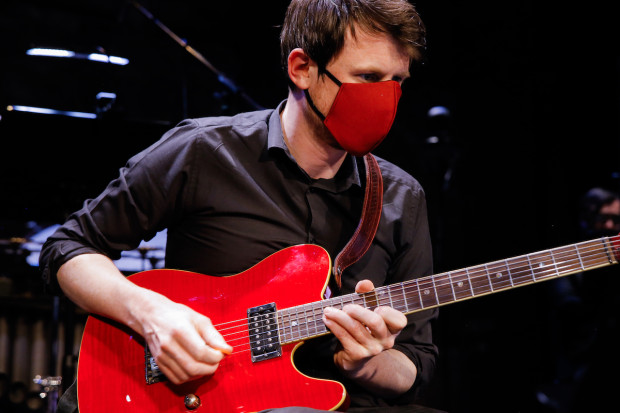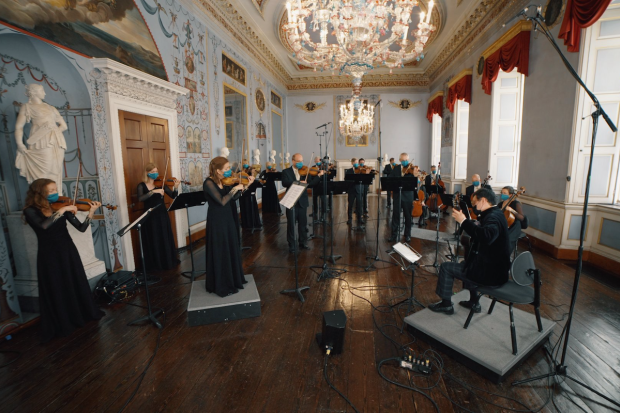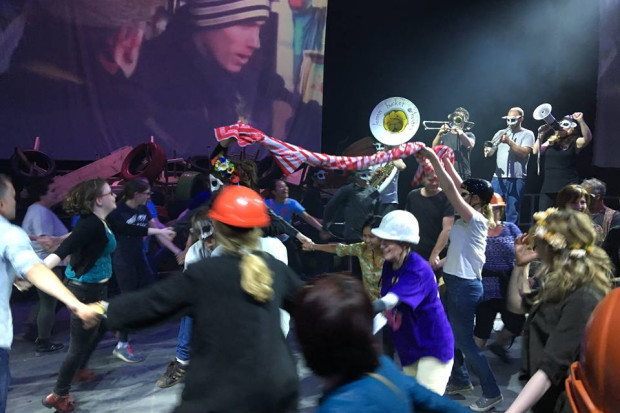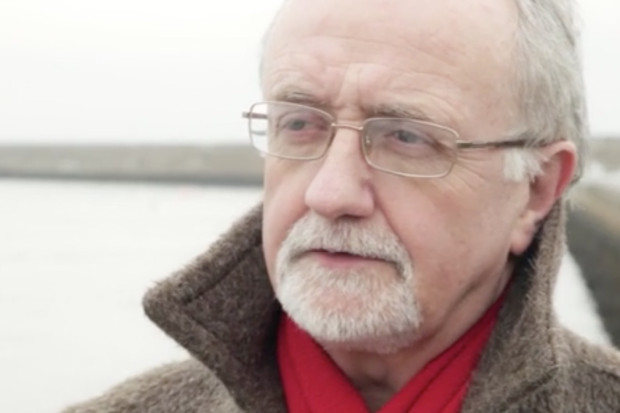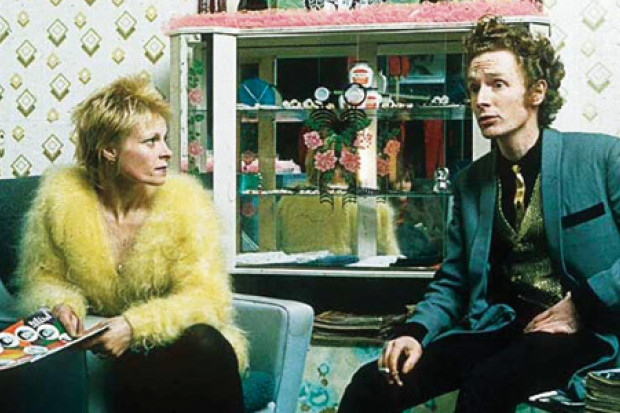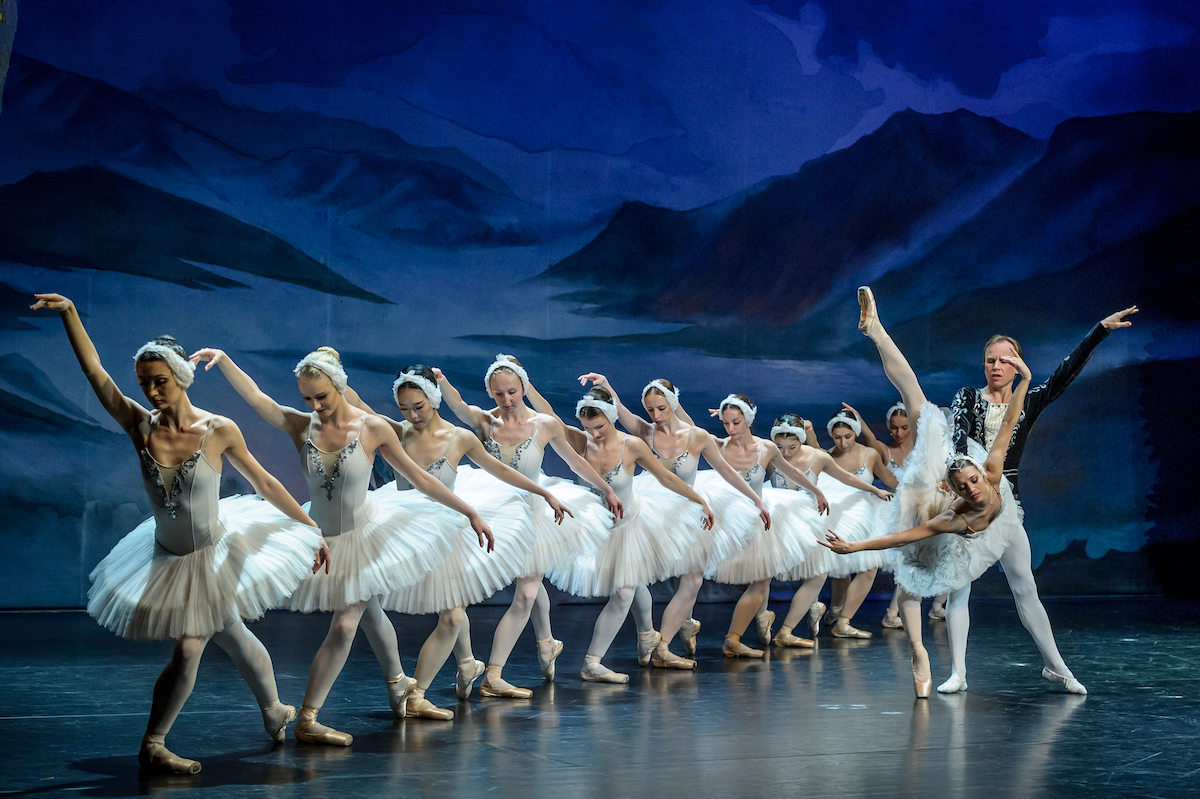
The Royal Moscow Ballet
Dublin Theatres Were Wrong to Cancel Russian Ballets
On the 25th of February, the day after Russia’s invasion of Ukraine officially commenced, the DCU’s Helix Theatre announced that it was cancelling its upcoming performances of the Royal Moscow Ballet. The following statement appeared on the theatre’s website:
… as a result of the truly shocking events that are unfolding in Ukraine, it is crucial that Dublin City University and all civilised countries take all practical steps to stand in solidarity with the people of Ukraine, and send an unambiguous message to the Russian Government that their deplorable actions have consequences that will have impact across political, economic, sporting and cultural spheres at all levels.
The next day the Bord Gáis Energy Theatre announced via Twitter that it was cancelling its upcoming performances of Swan Lake by another Russian group – the St Petersburg Ballet company. The statement said that the theatre ‘stands firmly behind the people and nation of Ukraine’ and that it hopes for ‘a diplomatic, swift, and more peaceful resolution to this tragic attack’.
These cancellations form part of a wave of similar instances in other countries. In the UK, the Royal Opera House has cancelled the participation of the Bolshoi Ballet in their summer season while several other regional houses in the UK have cancelled a tour of the Russian State Ballet of Siberia. Individual Russian artists have also come under pressure to denounce the Russian president Vladimir Putin and the war or face the consequences. The most high-profile casualty has been conductor Valery Gergiev – a long-time Putin supporter who was first dropped by his management agency and then issued with a deadline of Monday 28th by the Munich Philharmonic to denounce Putin or be fired. The deadline passed, no statement arrived and Gergiev was duly relieved of his duties. Others include soprano Anna Netrebko, whose reign at the Met came to a halt after she apparently refused to repudiate Putin, while conductor Tugan Sokhiev decided to resign both from his position as musical director of the Bolshoi Theatre and from his equivalent position with France’s Orchestre National du Capitole de Toulouse after he said he was ‘forced to face the impossible option of choosing between my beloved Russian and beloved French musicians’.
By contrast many high-profile Russian musicians have not shied away from declaring their opposition to the war. Kirill Petrenko, the conductor of the Berlin Philharmonic, condemned ‘Putin’s insidious attack’ on Ukraine and called it ‘a knife in the back of the entire peaceful world’. His namesake Vasily Petrenko, music director of the Royal Philharmonic Orchestra, has said he will not perform in Russia ‘until peace has been restored’ and called the invasion ‘one of the greatest moral failures… of our century’. Perhaps the most forceful statement was by Semyon Bychkov, music director of the Czech Philharmonic, who declared that ‘silence in the face of evil becomes its accomplice and ends up becoming its equal. … To remain silent today is to betray our conscience and our values, and ultimately what defines the nobility of human nature.’
Hideous crime
Let us be clear: Russia’s invasion of Ukraine is a hideous crime for which there can be no justification. Most people are naturally appalled at the senseless loss of life and suffering inflicted on innocent Ukrainians. At the same time, we should be worldly enough to realise that Russia’s actions are not an isolated example of a great power using its might to crush those who take a stand against them. One only has to mention the United States and the UK’s illegal invasion of Iraq coupled with drone strikes in Pakistan, Afghanistan, Yemen and Somalia; Israel’s habitual airstrikes on Palestinians; China’s incarceration of over 1 million Uyghurs in concentration camps; Saudi Arabia’s ongoing slaughter in Yemen (with Western supplied weapons) and so on. The list is as long as it is depressing and while we can argue about the details of these conflicts, when it comes to the pain inflicted on innocent civilians, the differences are a matter of degree rather than of kind.
What we have seen emerge over the past two weeks in relation to the Russian invasion of Ukraine is, in essence, the formation of a cultural boycott. Before rushing to support this development unquestioningly, it is worth reflecting on the motives behind such actions and what concrete results they might hope to achieve.
A cultural boycott is a tactic – it is not a solution – and the history of boycotts reveal that they tend to work best when they are clear, targeted and, most crucially, consistent. The most successful instance was undoubtedly that of South Africa, which was subject to a cultural, academic and sporting boycott for many years until the end of the apartheid system. These sanctions were aimed principally at apartheid government institutions and the minority white population who supported the status quo. While black artists sometimes had opportunities curtailed in the process, the boycott was initiated by the African National Congress and overwhelmingly supported by the majority black population. As such, apartheid South Africa had an entirely different range of factors compared to the present situation in Russia.
In the case of Israel, the elements of the Boycott, Divestment and Sanction (BDS) movement that have proved to be the most effective are also those which are the most unambiguous. Banning imports from the illegal settlements in the occupied territories is clearly the correct thing to do: boycotting Eurovision or disrupting a performance by the Israel Philharmonic Orchestra, on the other hand, have tended to divide opinion. As the saying goes, in politics, ‘if you’re explaining, you’re losing’.
Looked at in this way, the target of any cultural boycott activities should be those who directly support Putin’s regime and who have acted as its apologists; not ordinary Russians. In the case of Gergiev and the Munich Philharmonic, it is clear the conductor had to go. Gergiev has never seen an aggressive action by Putin that he didn’t like as evinced by his enthusiastic participation in propaganda concerts in Syria as well as supporting Russia’s illegal annexation of Crimea in 2014. It is entirely understandable that no cultural institution would want to have anything to do with him.
The case of Anna Netrebko is more complicated. On Saturday 26 February – two days after the initial invasion – she released the following statement:
I am opposed to this war. I am Russian and I love my country but I have many friends in Ukraine and the pain and suffering right now breaks my heart. I want this war to end and for people to be able to live in peace. This is what I hope and pray for.
This did not go far enough for the Met however, who declared the following day that they would not work with any artist who supported Putin. An Associated Press report revealed that despite repeated attempts to convince her to explicitly denounce the Russian president, Netrebko decided instead to withdraw from her upcoming performances with the company. According to Peter Gelb, the general manager of the Met, ‘Anna is one of the greatest singers in Met history, but with Putin killing innocent victims in Ukraine, there was no way forward’.
Whether one agrees with the Met’s decision or not, the Netrebko affair should cause us to pause and reflect: is this now to be the standard requirement for all Russian performing artists – that they must condemn the war and Putin or face cancellation – even if the artist in question has no track record of political involvement?
Political statements
Judging by recent developments, the answer would seem to be yes. Leila Getz, the artistic director of the Vancouver Recital Society, cited this as the main reason for cancelling Alexander Malofeev, a 20-year old Russian pianist and student at the Moscow Conservatory who was scheduled to perform in a concert in August. In a newsletter, she wrote:
We at the VRS cannot in good conscience present a concert by any Russian artist at this moment in time unless they are prepared to speak out publicly against this war.
Getz claimed that her original decision was more to do with protecting the young pianist. She continued:
As you can imagine, I feel terrible and conflicted about it. Alexander is an incredibly talented young artist embarking upon what will surely be (in a sane world) a stellar career. He is now being penalized, despite the fact that he has nothing to do with what’s going on. He is in fear of what would happen to his family, with whom he still lives in Moscow, if he speaks out. Alexander Malofeev is just one the many millions of innocent Russians who are being deeply impacted by the actions of their government. It is all so very senseless. And it breaks my heart.
The young pianist had never made a political statement in his life until the Wednesday after the cancellation, when the following statement appeared on his official Facebook page in direct connection with the Vancouver cancellation:
The truth is that every Russian will feel guilty for decades because of the terrible and bloody decision that none of us could influence and predict.
Whether or not one interprets Getz’ statement as expressing genuine concern for the welfare of the young pianist or a frantic attempt to row back in the face of criticism, there is something rather troubling in expecting an artist to speak out while at the same time knowing that doing so may put them or members of their family in grave danger. One could ask the Vancouver Recital Society, as I did, if they will be asking the Chinese pianist Yuja Wang to take a stand on China’s persecution of the Uyghurs before her performance with them on 30 March. Of course not. But if we are going to have a policy of denouncing wrongs, then it has to be the same for everybody.
The Malofeev incident does demonstrate the dangers of arts administrators wading into geopolitics without having fully thought through the implications. Artists who have no record of political involvement should on no account be forced into making political statements under the threat of cancellation simply on account of their nationality. Such a requirement is a basic violation of their freedom of conscience, one of the foundational principles of Western democracy and the very thing that differentiates our societies from that of Putin’s Russia.
Dublin theatres
So where does all of this leave the decision of DCU and the Bord Gáis Energy Theatre to cancel performances by the Russian ballet companies? Neither the Royal Moscow Ballet nor the St Petersburg Theatre Ballet company are funded by the Russian government nor has either been associated with the actions of the Kremlin. I emailed both DCU and the Bord Gáis Energy Theatre to inquire if 1) they were aware that these companies are not funded by the Russian government, and 2) if the companies were given any opportunity to make a statement on the war before the cancellation of their performance was announced. The Bord Gáis Energy Theatre did not respond while the Helix replied saying that they ‘won’t be making any further comment outside of that statement which is in the public domain’. This silence is quite a turnaround compared to the strident denunciations that were issued two weeks ago when talk of ‘civilised countries’ and consequences ‘at all levels’ thundered forth from Glasnevin.
Our current social media landscape is characterised by a mania for righteousness and being seen to take a stand, often oblivious to the blatant inconsistencies and double standards involved. In the headlong rush to condemn the actions of the Russian government, many have failed to distinguish between the corrupt elite who actually control the state apparatus and the ordinary Russian who, in reality, has little political agency. Many Russians living in Ireland are undoubtedly feeling uncomfortable at the anti-Russian rhetoric that has sprung up in the last two weeks and while this distress may seem insignificant compared to the heartbreaking trauma currently being endured by Ukrainians, it is nevertheless undeserved and unwelcome.
Ireland’s classical music scene has benefitted greatly from both Russian and Ukrainian musicians over the years. They occupy teaching positions in our conservatories and private music schools. For these reasons, it is disappointing that the Dublin International Piano Competition has decided to exclude competitors from Russia from this year’s competition due to take place on 13–24 May. This approach contrasts with that of the Van Cliburn International Piano Competition, who said that while the invasion of Ukraine by Russia is ‘reprehensible and heartbreaking’ and that the competition ‘stands firmly against and condemns this tyranny’, Russian-born pianists who have applied ‘are not officials of their government, nor is their participation in the Cliburn state-sponsored.’ They will, therefore, be allowed to audition for the competition.
Readers can judge for themselves which approach is ultimately the more principled. In these desperate times, we should support the innocent citizens of both countries and show real solidarity in the face of this horrible war.
Published on 10 March 2022
Adrian Smith is Lecturer in Musicology at TU Dublin Conservatoire.












